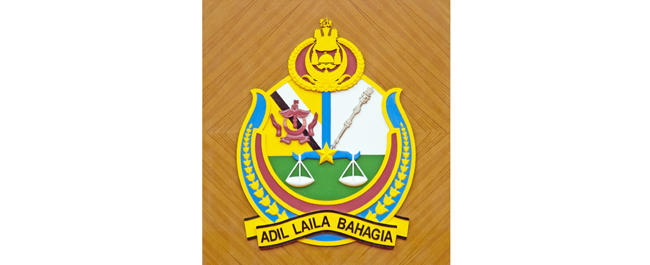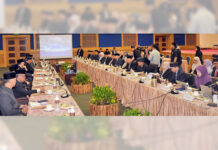Izah Azahari
A national health screening campaign to help control non-communicable diseases (NCDs) was stalled due to COVID-19, said Minister of Health Yang Berhormat Dato Seri Setia Dr Haji Mohd Isham bin Haji Jaafar during yesterday’s 19th Legislative Council (LegCo) session.
LegCo member Yang Berhormat Hajah Safiah binti Sheikh Haji Abdul Salam highlighted the increase in the number of kidney disease cases and questioned the effectiveness of NCD control programmes.
In response, the minister said that prior to COVID-19, the ministry had tried to carry out a national campaign to conduct health screenings, particularly for high blood pressure, diabetes, cancer and heart conditions.
“Due to the pandemic, the campaign has stalled. However, the Ministry of Health will be more active in the matter,” he said.
He noted that over the past five years, more than 600 cases of kidney disease have been recorded annually. “This year alone the number of cases has reached more than 900,” said the minister, adding that Brunei Darussalam is one of five countries ranked highest in the world for kidney problems, in terms of ratio of cases to the population.

UPTAKE IN PERITONEAL DIALYSIS TREATMENT
The minister also replied to Yang Berhormat Hajah Safiah’s query on peritoneal dialysis treatments, saying that uptake has increased over the COVID-19 pandemic period as more of the public begin to understand its process.
“In the three years of dealing with COVID-19, its adoption has increased from only tens to more than 200 people,” said the minister.
Peritoneal dialysis involves inserting a catheter into the stomach and making use of the lining of the abdomen (peritoneal) as a filter to remove waste products from the blood.
The process can be done at home every night, said the minister, adding that a person undergoing the treatment will no longer have to spend several hours at dialysis centre.
“A person can carry out normal work and activities during the day without being affected,” he said, adding that it can also ease the burden on the patient’s family who would have to wait a long time during the dialysis process at the centre. “The peritoneal dialysis method can also reduce the complications associated with haemodialysis,” he said.
The minister also noted patients were now more prepared for kidney transplants, with 15 transplants performed locally over the last few years and is expected to increase annually.
He said following more success stories, those given the option for the procedure are now more likely to take it.



















































